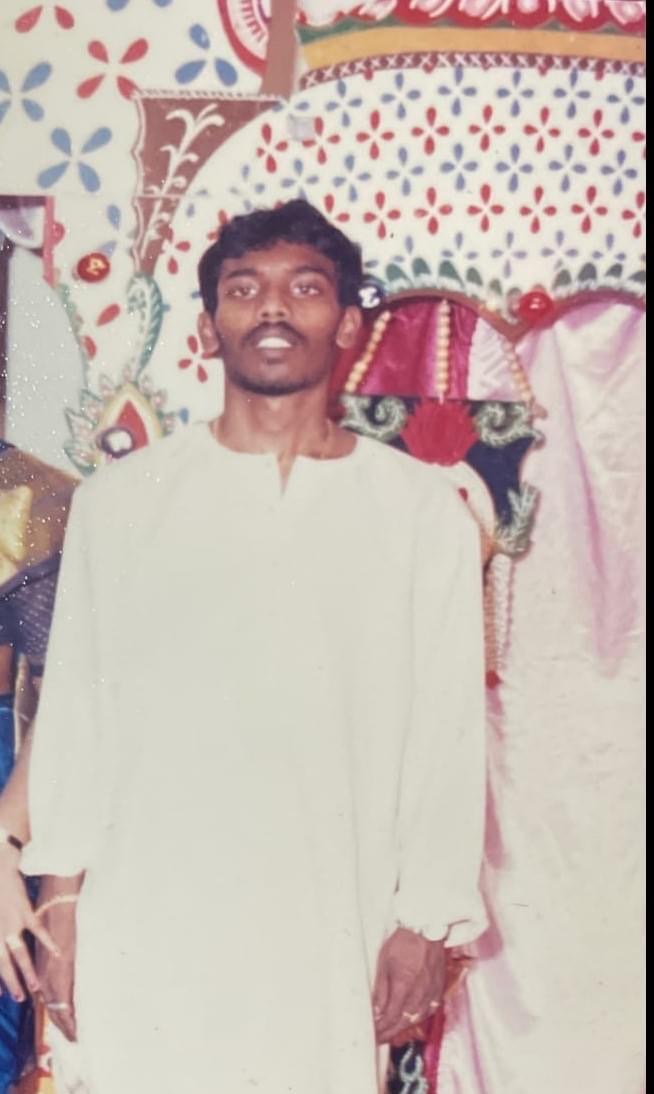
Photograph courtesy of Transformative Justice Collective
The family of Singaporean Tamil Tangaraju Suppiah are calling on President Halimah Yacob to exercise clemency to stop Tanagaraju's execution tomorrow after his review application was summarily dismissed earlier today.
The 46 year old was convicted and sentenced to death in October 2018 for abetting by conspiracy to traffic 1,017.9g of cannabis from Malaysia to Singapore, a country that has received widespread criticism over its harsh drug laws. Tanagaraju was arrested in March 2014 after he was tied to the offence by two phone numbers found on the mobile phones of two men arrested by the Central Narcotics Bureau, one of which had been used to coordinate the cannabis delivery.
However, Tangaraju said he had lost one of the phones in 2013 and denied owning the second one.
Tangaraju's family and activists have also raised concerns over aspects of his case. At the time of arrest, Tangaraju was questioned by police without being accompanied by legal counsel and his requests for a Tamil interpreter during the questionning were denied.
The Guardian reports that the Central Narcotics Bureau of Singapore has said that Tangaraju was “accorded full due process under the law, and had access to legal counsel throughout the process."
Last week, Tanagaraju's family were contacted to inform them that his execution date is 26th April. In Singapore, death row prisoners and their family are only given seven days notice of their scheduled execution.
Tangaraju's sister Leelathavy told Al Jazeera that the prison took his height and weight to measure the rope for the execution.
“He [Tangaraju] told us that he will be taken to visit the execution chamber, so that they can explain to him how things will happen and where he will be standing and things like that. That was obviously very difficult to listen to.”
Kokila Annamalai, a member of the Transformative Justice Collective, said that “the evidence against Tangaraju is shockingly thin. There is a high risk that this planned execution is unsafe.”
“Tangaraju has spent most of his life behind bars, since he was just a 14 year-old child, for consuming or possessing cannabis, which the world is moving towards legalising. His is a story of a child discarded by our cruel systems. Singapore’s drug policy is not only destructive and inhumane, it is also not evidence-based or effective in protecting individuals and communities from the harms of drug use. More than drugs, it is our drug policy that ruins lives in Singapore.”
Human rights organisations have also called on Singapore to halt the execution. The International Commission of Jurists (ICJ) said that "executions violate the right to life and are the ultimate cruel, inhuman or degrading punishment. They must never be imposed for drug offences under international law."
The ICJ also called on Singapore to "respect the UN General Assembly resolution, adopted with the support of the overwhelming majority of States, to impose an immediate moratorium on executions."
Last year, Singapore executed Nagaenthran Dharmalingam, a 34-year-old Tamil Malaysian man who has an IQ of 69 - a level that indicates an intellectual disability – despite global outcry over the sentencing.
If Tanagaraju's execution goes ahead tomorrow, it will be Singapore's first execution in six months.
